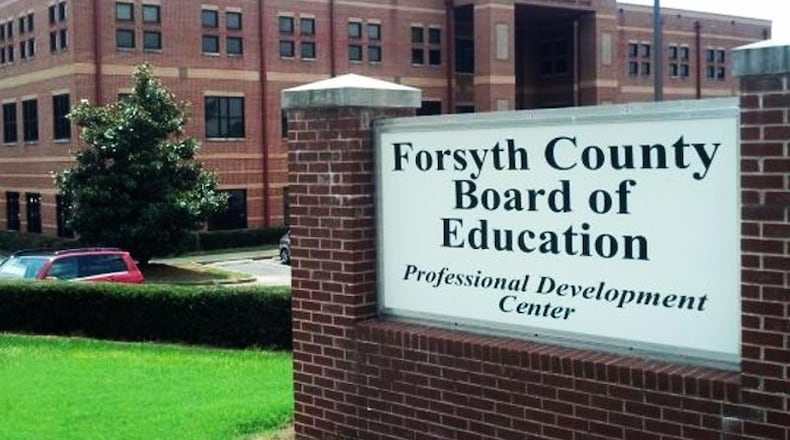School libraries are on the front line of the state’s culture wars, with Georgia parents even accusing school board members of pedophilia for refusing to ban books.
Several parents lobbed that allegation recently during a wild board meeting in Forsyth County, a Republican bastion that never required masks in schools.
Betsy DeVos, secretary of education under Donald Trump, visited the district in 2020 to bolster his insistence that schools reopen during the pandemic, citing Forsyth as an example.
But Forsyth is still among the districts fending off charges of liberal indoctrination, an accusation fueled by apocalyptic Facebook pages listing offending books and strategies to remove them.
The cultural hysteria led to this month’s firing of a Mississippi assistant principal for reading the popular kids’ book “I Need a New Butt” to second graders. The Hinds County superintendent deemed the book inappropriate.
Attacks on books come as fewer children read. Surveys by the National Assessment of Educational Progress found 17% of 13-year-olds still read for fun almost every day, down from 35% in 1984. In comparison, more than a third of TikTok’s daily users are under 14. A new survey by Common Sense Media found social media use is increasing for 8- to 12-year-olds, an age group technically barred from main social media platforms.
It’s not what kids are seeing on TikTok that’s alarming Forsyth parents, but the obscene content they contend their kids can find in school libraries. Forsyth parents tried to read sex scenes from teen-oriented books, provoking the school board chair into pausing the meeting.
Classroom literature has long grappled with sexuality, sexual assaults and other sensitive themes. Most ninth graders still study “Romeo and Juliet,” which depicts a 13-year-old girl engaging in sex with an older boy, as well as youth suicide, said Shekema Dunlap, who, as a Clayton County teacher in 2011, won the nation’s top teaching honor, the Milken Award.
She said there are few objections to the courtroom description of rape in “To Kill a Mockingbird,” a classroom standard. A key difference is that the books under attack address coming-of-age as an LGBTQ person and are written by people of color and women.
“The underlying issue here is that violence against girls’ bodies, whether the perpetrators are their older boyfriends, fathers, or even accused rapists is OK because our society views that as normal. However, anything beyond heterosexual, male-dominant sexual pleasure is too explicit,” said Dunlap, a member of the National Council of Teachers of English Standing Committee on Diversity and Inclusivity.
“These parents in Forsyth want to silence any voices that are dissident,” she added.
“Removing books written by people that are minorities like me removes representation that ultimately hurts us,” said Shivi Mehta, a freshman at Forsyth’s Alliance Academy for Innovation. Bans target books that address rape and sexual assault, something that many teens face, she said, adding, “We need to have these uncomfortable discussions.”
But Forsyth resident Cindy Kedzierski said, “As parents and community leaders are finding out what equity, inclusion, diversity and social and emotional learning really is, they want it out of their schools.”
Kedzierski said the superintendent was provided a list of 100 pornographic books in the schools, a list assembled with the Atlanta-based Truth in Education group, which promotes “biblical change” in public schools and targets books, social and emotional learning and comprehensive sex education. She added, “These books are so graphic that they are not allowed to be read at school board meetings. These same books are allowed to be on the shelves in elementary, middle and high school libraries.”
The Forsyth Coalition for Education, a newly formed group to combat censorship, is calling for greater trust in the educators who vet books. In January, Forsyth Schools pulled eight titles from school shelves deemed to contain “pervasive sexually explicit” content including Toni Morrison’s acclaimed “The Bluest Eye. The coalition said the removals violate district procedures.
Angie Darnell, a 21-year county resident with four children, never spoke at a school board meeting until this month. She was among the dozen people who organized the coalition which in a week grew to 150 community members, parents and students.
“We have wonderful teachers, administrators and programs,” said Darnell. “I spoke out because this is an attack on the integrity of public schools. Forsyth County Schools are not broken, and most people would like to keep it that way.”
About the Author
The Latest
Featured



